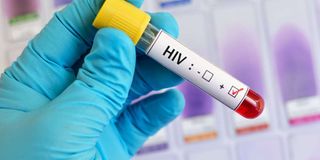Basket of HIV prevention options needs to be filled

The Dapivirine ring gradually releases the antiretroviral drug dapivirine in the vagina with minimal absorption in the body.
We stand at a thrilling precipice in the fight against HIV/Aids. For the first time in history, the end of this devastating epidemic is within our grasp. This isn’t just hopeful thinking – it's a real possibility, thanks to an expanding basket of options that are revolutionising our approach to HIV prevention.
In recent years, we’ve seen remarkable advancements such as oral pre-exposure prophylaxis (PrEP), which has proven highly effective when taken consistently. Long-acting injectable PrEP, like cabotegravir, offers protection for months at a time and address some of the challenges that daily regimens present. Promising research is underway for PrEP implants and antibody infusions, which could provide even longer-lasting protection.
But today, I want to highlight a ground-breaking addition that is discreet and doesn’t require women to ask permission from their partners to use it — the dapivirine vaginal ring. The ring symbolises a shift towards truly empowering women in HIV prevention. It is the first long-acting, non-systemic, women-controlled HIV prevention method. Women in six African countries, through 30 pilot projects, can now tap into this new product.
Unfortunately, a major obstacle remains — the women and girls in the region who urgently need the products, particularly the dapivirine ring, cannot actually access them.
One young woman from Malawi who wrote to me said, “I do not have access to the ring, but it would help me have control of my health by giving me protection against HIV and it would give me peace of mind.”
Another young woman wrote, “I have tried to access the ring for over a year now since I heard about it, but sadly I could not have access to it because it’s not yet approved to be used in Tanzania.”
Another, in Zambia, says, “I have not tried the ring. I don’t have access because it is not accessible in my country. But it will help me achieve my goals.”
The problem is that the only way to access this product is through one of these pilot research projects.
We need to do better because HIV/Aids is a serious problem for women in sub-Saharan Africa. According to the UN, 82 per cent of all adolescent girls and young women (ages 15-24) globally who acquired HIV in 2022 live in sub-Saharan Africa. Yet, in the 19 sub-Saharan African countries with a high burden of HIV infections, less than half of all locations with high HIV incidence have dedicated HIV prevention programmes that serve adolescent girls and young women.
I believe the ring can be a critical component of these services. Made of flexible silicone, the ring slowly releases the antiretroviral drug dapivirine in the vagina over one month. It was developed to provide long-acting prevention for women so that they could choose a method that best suited their lifestyle. A dapivirine ring that would work for three months is also undergoing the final stages of research.
Recent research has confirmed the importance of choice. After using both the ring and oral PrEP for six months each, 67 per cent of the participants chose the ring, 31 per cent chose oral PrEP, and only 2 per cent chose to use neither.
In Eswatini, access will be scaled up once the pilot projects there have concluded and we expect that the other five countries with pilot projects — Kenya, Lesotho, South Africa, Uganda, and Zimbabwe — will do so as well.
I’m encouraged to see that Botswana, Malawi, Namibia, and Rwanda have provided regulatory approvals for the ring, or authorisation for its use, through import permits. A South African pharmaceutical company plans on manufacturing the ring locally, which would lower the cost of the product.
But the ring is just one piece of the puzzle. We must ensure that the full range of prevention options are made readily available to women and girls.
Yvette Raphael is a co-founder and Executive Director of Advocacy for Prevention of HIV in Africa (APHA) in South Africa





